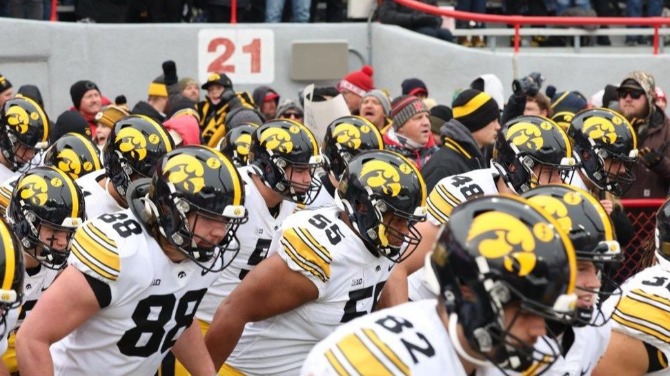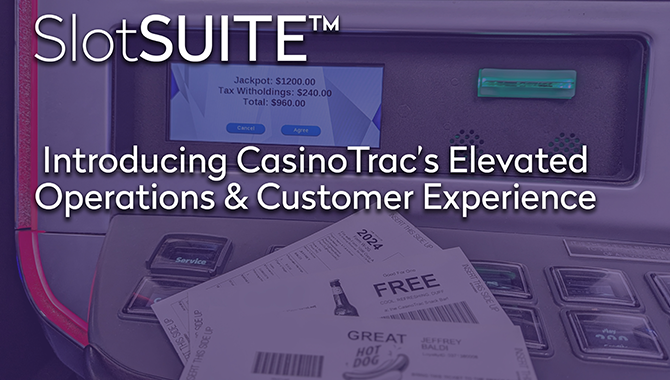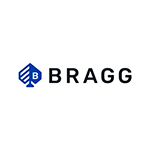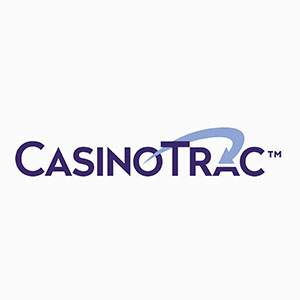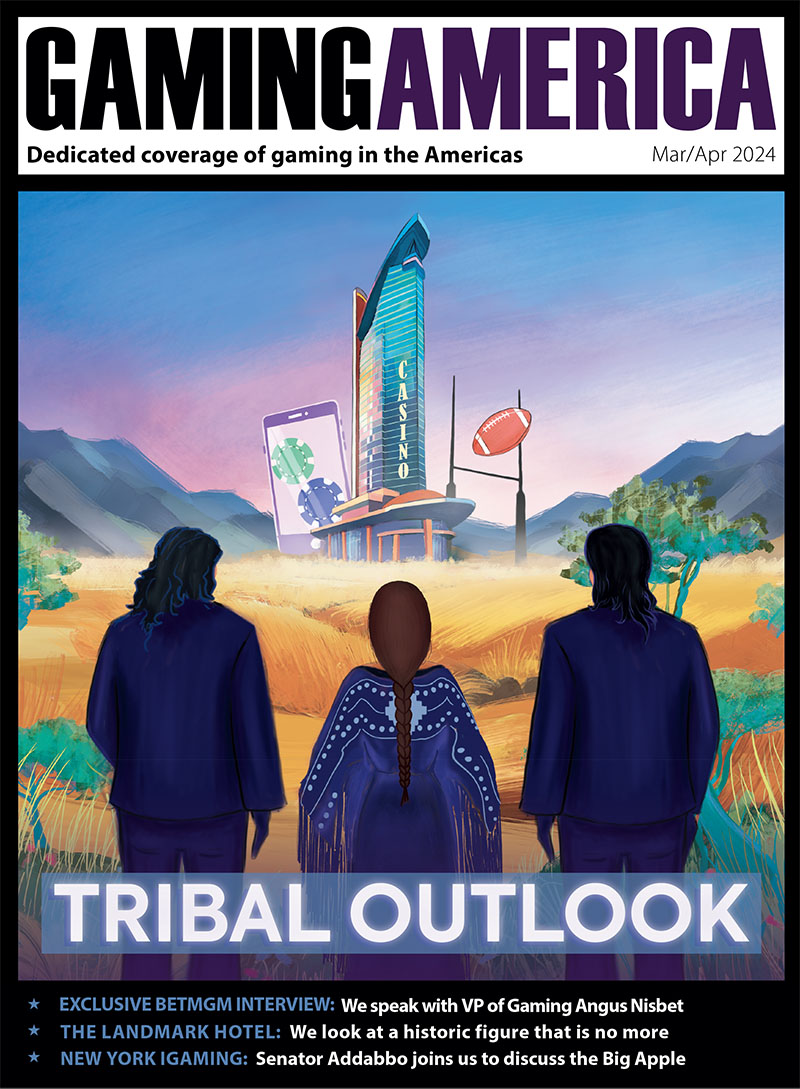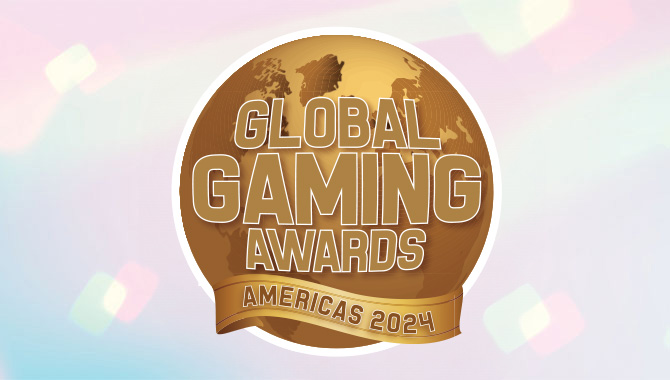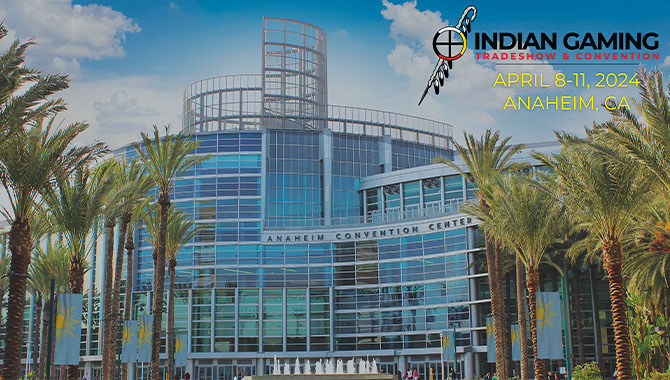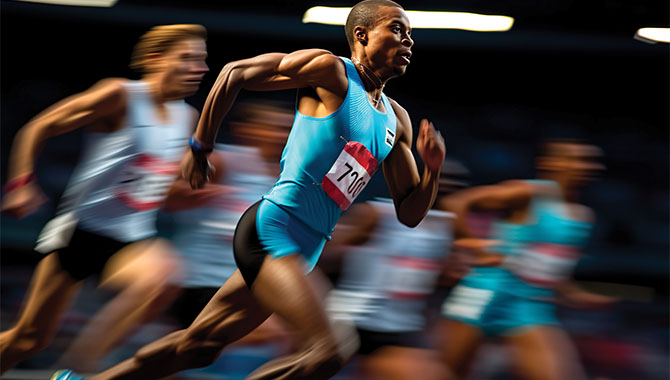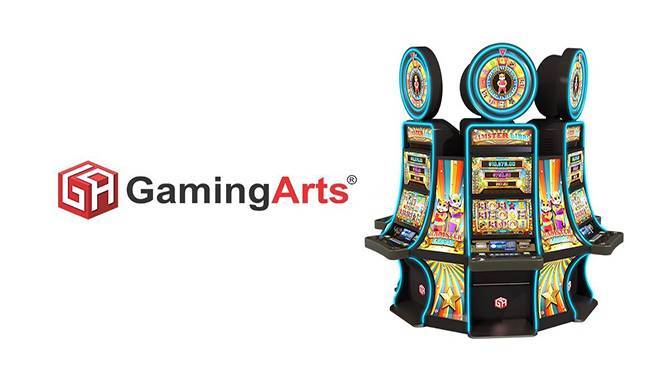
How much of a presence do tribal gaming firms have at a show like ICE London?
There are some people from tribal gaming in the US that do come to ICE. Of course, it’s not a lot of representation but there is some. From what I can tell, the folks that come from tribal gaming look at some of the online gaming and social gaming-type solutions. This year, with the growing presence of sports betting in the US, I believe they’re coming to look for solutions for their particular tribe. In March, we convene at the National Indian Gaming Association (NIGA) show in San Diego, where there is a greater tribal focus. That’s an association show we always support every year and feel honoured to be part of for our tribal customers.
For a company like Gaming Arts, how do your preparations for ICE and G2E compare to your preparations for NIGA and the Oklahoma Indian Gaming Association show?
We are a small company and we’re just starting in many ways. We’ve certainly only just started being in the slot business within the last year. We’re showing our products and trying to find customers who find value in our products. A lot of what we show is the same across these events, because we’re showing our games, capabilities and technology to customers; assessing whether they can find interest in a co-hold in the US, UK or other parts of the world. I will say this: our product was designed for the North American market and the tribal market but that’s not to say it can’t be used in Europe. That’s why we’re here at ICE London.
Do you work with a lot of tribes and is tribal gaming a big interest for Gaming Arts?
Enormous, yes. At this stage, the tribal gaming opportunity, working with our tribal partners as a supplier, represents the lion’s share of our business. Most of the business we do is in tribal casinos. Tribal gaming has proliferated in the last two decades within the US and has grown, as a matter of revenue, larger than what we call commercial gaming (non-tribal in the US).
So the short answer is, yes, tribal gaming is a very, very big part of what we do. It’s a very important constituency and a very important group of partners and customers. Whether it’s here, at NIGA or G2E, we do our best to put our best foot forward to all our customers – but tribal gaming is an enormous part of our strategy.
What is your take on the current regulatory situations within tribal gaming, particularly in Oklahoma and California?
I’m certainly aware of the situation in Oklahoma, where they’re negotiating a renewal of the compact. We’re very keenly aware of what’s going on in California, too. It’s important as participants in this market to understand what the regulatory and legal landscape is, so we keep an eye on it. I don’t think it’s for us to say or opine on how the tribes do their business.
But we keep an eye on it and our goal is to be at all times the best partner possible to our tribal customers, offering them cutting-edge technology and gaming experiences that will give their players interest and desire to keep coming back and playing. That’s where our focus is, on the entertainment side rather than the political side. We deal with the landscape but, at the end of the day, it’s about providing a great product and service to our customers in the tribal community.
Do these kinds of issues have an impact on you as a supplier, though, in terms of your planning and what markets you’re targeting?
Some of these things can present opportunities. I’ll give you a perfect example: this is an industry statement rather than a Gaming Arts statement, per sé. At present, each tribe has a compact with the state, which is essentially a contract and terms upon which the can provide class III gaming devices for a certain amount of tax the tribe then agrees with the state. Class II gaming, which is based upon a bingo RNG, a bingo game with an entertaining display, those are outside the context of the compact. Therefore, there is no tax to be paid as a result of the tribe’s usage of the games.
So sometimes when things like this happen, we see some of our tribal customers have a renewed commitment to request for R & D in the class II area. Again, we don’t have a class II product – we are focusing on class II for 2021 and we’re looking currently at RNG class III opportunities. But when these things happen, the landscape shifts and, as a result, there is greater interest in class II. So the tribe has more sovereignty as they work with suppliers not within the context of the compact. From our perspective, the rest of it is understanding what the landscape is and providing the very best product we can in tribal or commercial casinos anywhere.
Regulation aside, what are the biggest trends you envisage for tribal gaming in 2020?
First of all, I would say the economic health of the tribes and tribal gaming seems to be quite strong. They are interested in providing to their player the very best product and very best player experience – and that costs money. So the capital budgets that seem to exist for tribes are significant and they have made a multi, multi-million-dollar commitment to provide the very best product. That’s definitely a trend we see and they really are sparing no expense in that area.
Related to that, even though our industry is very highly regulated, the tribes pursue the cutting edge in a lot of cases. This means you’ll have greater technology, more functionality, more sizzle, more games with greater bells and whistles, and gameplay mechanics. You’ll see a lot of that in tribal country. One of the tribes’ hallmarks is innovation.
So would you say it’s a sense of forward thinking and ambition with regards to innovation, rather than capitalizing on what the tribes already have?
Yes, as with any floor, tribal gaming floors have to have an eye on the present and have certain staples necessary within their casino floors. But, yes, there’s a forward-looking approach and tribes are always look to improve what’s gone before. Another trend I think is interesting is a continued reliance on analytics. The tribes themselves are focusing more and more on data-driven solutions. You see that in gaming generally but in tribal gaming especially. You have a lot of tools and software to always try and gain the best yield and analytics. The tribal gaming space is a very sophisticated gaming space.
Our mission as a small company is to provide these spaces and our customers with compelling products for their players. Every day we wake up with that philosophy and we want to be different. We have recently been identified as different. We will continue to strive to be great partners for tribal gaming. Our industry is very small and we believe we are a tool that can help supply economic benefit and reward to tribes. That, in turn, will be good for the healthy and sustainability of the tribe.
We believe in that sort of involvement and we will hopefully be there to provide a little diversity, perhaps in places where casinos see weaknesses on their floors. It all ties together; we’re very fortunate and grateful to have been accepted as a supplier in tribal gaming – it’s not an easy thing to do. Tribes see how responsive we are to their wants and needs and we’re very grateful; we will always be a strong supporter of tribal gaming.

